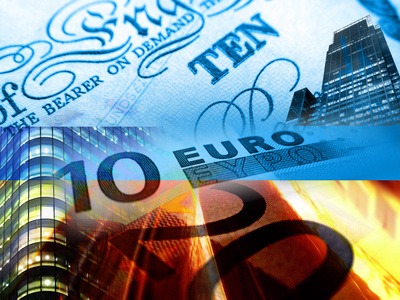Jean-Claude Trichet will have his monthly rendezvous with the press after the rate decision, and is likely to be softer this time. How will the euro react to Trichet’s words? ECB Preview with four scenarios – one is already priced in.
On Thursday at 11:45 GMT, the ECB is expected to leave the interest rates unchanged after the 0.25% hike last month to 1.50%. Trichet didn’t say “strong vigilance” last time, so no hike is likely now. But what will he say now?
Bad Figures
Most of the indicators released lately, point to a slowdown in the euro-zone. This was best seen in purchasing managers’ indices, that were disappointing and showed that the economies are nearing a halt. This includes Germany and France as well as other countries. Business confidence has fallen in Germany,as reflected by both the usually pessimistic ZEW Economic Sentiment, and the usually optimistic IFO survey.
There were some points of light, such as retail sales, which jumped by 0.9% in July, more than expected.
The most important figure for the ECB is headline CPI: according to the latest flash estimate, the annual level of inflation dropped to 2.5% in July, lower than 2.7% that was seen in previous months, and predicted by the markets. This is still above the ECB’s target, 2% or a little below, but already reflects some change. Also producer prices are moving down.
Debt Crisis Separate from Policy
Needless to say, the debt crisis is raging in Europe, with Spanish and Italian yields reaching unsustainable levels, less than two weeks after the EU Summit. These troubles are usually left out of ECB’s calculations regarding the interest rate.
In July, Jean-Claude Trichet said that the ECB is “very closely monitoring” the situation. This is one level below “strong vigilance”. This left room for a rate hike two months after that announcement – in September, but without commitment.
Code Words
- Strong Vigilance: If Trichet ignores the recent data, he will say “strong vigilance” and the euro will jump higher. The chances are extremely low. Even without these numbers, the pace of hikes is more likely to remain at a hike only once every three months.
- Very closely monitoring: A repeat of last month’s statement will leave the door open for a hike in October, the last decision that Trichet will take. This scenario has medium probability, and it will trigger a small rise in the euro.
- Closely monitoring: A softer tone has a higher probability. Dropping the word “closely” means that inflation isn’t too bad. This will show that the ECB finally realizes the situation and acknowledges that a change of course is needed. It leaves the door open for rate hikes by Trichet’s heir, Mario Draghi in 2011. The markets currently don’t see another move this year. In this case, EUR/USD is likely to drop, but not sharply. This is already priced in.
- Concern: Stubborn Jean-Claude Trichet only sees inflation, and if it isn’t well under 2%, he isn’t likely to see anything else. But perhaps the depth of the political crisis, together with political pressure, will change his tone. If this scenario, with very low probability happens, there will be expectations for the desired rate cut that many struggling countries need, and it will send the euro way down.
More Trichet
Apart from the all-important opening statement, Trichet will also be grilled by reporters about the recent surge in Italian and Spanish bond yields and if the ECB plans to do anything about it.
His answers to these questions, and others, always rock the markets. Unfortunately, he is likely to avoid real answers, and send the reporters to the governments.
What Trichet should really do to help Europe, apart from a rate hike, is a massive quantitative easing program to lower the yields and restore confidence. Read more about it in the article: Can Jean-Claude Trichet turn into Jean-Claude Van Damme?
Stay tuned for live blogging and analysis.

